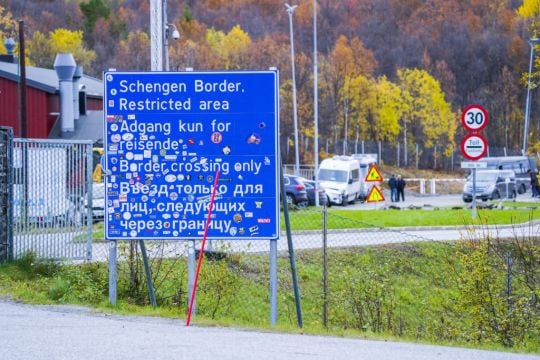Norway has said it will further tighten its restrictions on the entry of people from Russia.
The Scandinavian country said that people with tourist visas issued before regulations were tightened in 2022 or issued by another European country would be barred from entering Norway as of next week.
Justice minister Emilie Enger Mehl said the tightening was a response to “Russia’s illegal war of aggression against Ukraine”.
Norway has a 123-mile-long (198km) border with Russia in the Arctic.Aftenposten, a major Norwegian daily, said last week that Norway’s domestic security agency, known by the acronym PST, was worried that Russians involved in intelligence gathering were entering at the sole border crossing at Storskog near the town of Kirkenes.
Inger Haugland, head of counterespionage for PST, said on Wednesday that “Russia now sees itself benefiting from carrying out sabotage in European countries in order to weaken Ukrainian defence capabilities”. He gave no further details.
On Wednesday, PST updated its overall risk assessment, saying “it appears” that the threat of sabotage has increased against Norwegian companies producing weaponry that goes to Ukraine.
Enger Mehl said exceptions to the new entry restrictions would be made, including for people visiting close relatives in Norway or for Russians who worked or studied in Norway. Those who lived along the border had border resident certificates. Other Russians who planned to enter Norway for tourism or “other non-essential purposes” would be refused entry, he said. The ban would take effect next Wednesday.
“Of course, such decisions cannot remain unanswered,” Kremlin spokesperson Dmitry Peskov said.
“The decision is purely discriminatory.”
Although it is not a member of the European Union, Norway is part of the European ID-check-free zone known as the Schengen Area, which allows more than 400 million Europeans and visitors to move within the zone without showing travel documents.
Two years ago, the Norwegian government stopped issuing tourist visas to Russians. In September, it barred Russian-registered passenger cars from entering the Scandinavian country, mirroring EU sanctions against Moscow over its war on Ukraine.







